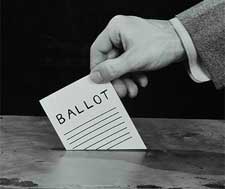 Preliminary injunctions are temporary court orders requested by one party that prevents another party from pursuing a particular course of conduct until the conclusion of a trial on the merits. A preliminary injunction is proper where the moving party proves the following two factors: (1) the likelihood that the moving party will ultimately prevail on the merits at the time of trial; and (2) that relative interim harm to the parties from issuance of the injunction weighs in that party’s favor.
Preliminary injunctions are temporary court orders requested by one party that prevents another party from pursuing a particular course of conduct until the conclusion of a trial on the merits. A preliminary injunction is proper where the moving party proves the following two factors: (1) the likelihood that the moving party will ultimately prevail on the merits at the time of trial; and (2) that relative interim harm to the parties from issuance of the injunction weighs in that party’s favor.
Occasionally, HOAs seek preliminary injunctions as a means to enforce the HOA’s governing documents. Among other reasons, the purpose behind that request for judicial relief is to restrain homeowner actions or omissions when such conduct potentially poses a threat of harm or risk to Association Property or the Association’s Members. Examples include a homeowner’s unauthorized alteration of structural common area components (e.g. removal of a bearing wall within a condominium unit; unapproved building activities on common area property).
Under the Davis-Stirling Common Interest Development Act (“Act”), at the conclusion of a trial on the merits, the prevailing party shall be awarded reasonable attorney’s fees and costs in an action to enforce the HOA’s governing documents (Civil Code Section 5975). Historically, there has been some question as to whether a moving party may recover statutory attorney’s fees and costs if the court grants a preliminary injunction in a HOA enforcement action. In January 2018, the California Court of Appeal addressed that issue in the case of Artus v. Gramercy Towers Condominium Association (19 Cal.App.5th 923).
 HOA Lawyer Blog
HOA Lawyer Blog


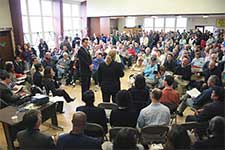
 Our
Our 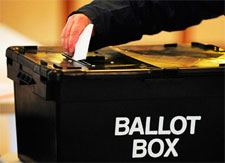
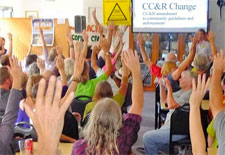
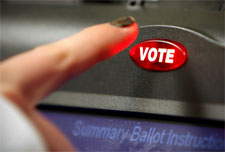 Under the Davis Stirling Act as currently written, common interest developments (“CIDs”) are required to comply with certain procedures for conducting elections. Among other requirements, the Act requires CIDs run by homeowners associations (“HOAs”) to adopt rules and appoint inspectors for the purpose of verifying signatures, counting and tabulating votes. Additionally, the votes themselves must be placed on secret paper ballots, using a specific procedure requiring the use of double envelopes.
Under the Davis Stirling Act as currently written, common interest developments (“CIDs”) are required to comply with certain procedures for conducting elections. Among other requirements, the Act requires CIDs run by homeowners associations (“HOAs”) to adopt rules and appoint inspectors for the purpose of verifying signatures, counting and tabulating votes. Additionally, the votes themselves must be placed on secret paper ballots, using a specific procedure requiring the use of double envelopes. Our
Our  *New Library Article
*New Library Article
